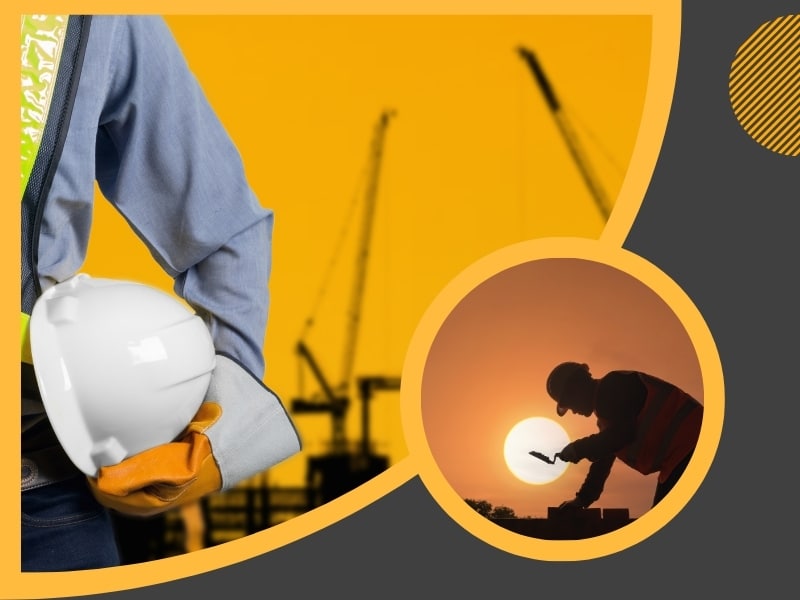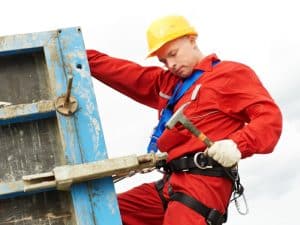Safety is paramount in the bustling world of construction. The white card is a crucial certification in ensuring workplace safety. This article will delve into the significance of the white card certificate in the construction industry, explaining why it’s mandatory for most workers and exploring its benefits to individuals and businesses.
What is a white card certificate?
A white card certificate, also known as a general construction induction card (GCIC), is an essential safety training qualification required for most construction workers in Australia. It gives workers essential knowledge and skills to work safely on construction sites. The certificate covers various safety aspects, including hazard identification, emergency procedures, personal protective equipment (PPE) and risk management in construction projects.
Why is safety training essential in construction?
Safety training is vital for several reasons:
- Hazard awareness: Construction sites can be dangerous environments. Training helps you identify potential hazards, reducing the risk of accidents.
- Legal compliance: Employers must ensure that their workers have proper safety training. A white card helps meet these obligations.
- Risk mitigation: Knowing how to handle tools and equipment safely lowers the chance of injuries.
- Emergency preparedness: Training provides knowledge on responding to emergencies, ensuring a safer workplace for everyone.
How does a white card certificate enhance workplace safety?
A white card certificate plays a significant role in enhancing workplace safety in the following ways:
- Hazard identification: Workers with a white card certificate are trained to recognise potential hazards in the workplace, such as unsafe equipment, slippery surfaces, and electrical hazards.
- Risk assessment: The certificate equips workers to assess risks and take appropriate measures to minimise them.
- Emergency procedures: White card holders are trained in emergency procedures, including first aid, fire safety, and evacuation plans.
- PPE usage: The certificate covers the proper use of PPE, such as hard hats, safety boots, and high-visibility clothing, to protect workers from injuries.
What are the consequences of not having a white card certificate?
Not having a white card can lead to severe repercussions:
- Ineligibility for employment: Most employers require this certification as an essential prerequisite for hiring. Without it, your job prospects are severely limited. Even if you have experience and skills, many construction roles won’t consider candidates who lack this essential qualification.
- Fines and penalties: Both workers and employers face financial repercussions for not adhering to safety training regulations. Workers who fail to obtain a white card may be subject to fines imposed by regulatory bodies. Similarly, employers can incur significant penalties if they hire untrained staff or fail to provide necessary safety training.
- Increased accident Risk: Workers with this training may be aware of potential hazards or the correct procedures for operating equipment safely. This knowledge gap can lead to mishaps, which affect not only the individual but also their colleagues. The consequences of workplace accidents can be dire, resulting in serious injuries, fatalities, and long-term health issues, ultimately affecting the entire workforce and project timelines.
- Legal liability: In an accident, a lack of training could lead to legal problems for both the worker and the employer. If an injury occurs on-site, the lack of exercise can be cited as a contributing factor, potentially resulting in legal action against both parties. Workers may be unable to claim compensation for their injuries due to their untrained status. On the other hand, employers could face lawsuits and increased insurance premiums, as the legal system may hold them liable for failing to ensure that all workers have received appropriate safety training.
How can you obtain a white card certificate?
Obtaining a white card certificate is straightforward:
- Choose a Registered Training Organisation (RTO): Look for an RTO that offers the required course.
- Complete the training course: The course covers safety protocols, hazard identification, and emergency response.
- Pass the assessment: After the training, you must pass an assessment to demonstrate your understanding.
- Receive your certificate: You’ll be issued your white card certificate upon completion.
What should you expect from training?
When you enrol in a white card training course, here’s what to expect:
- Interactive learning: The course typically includes group discussions and hands-on activities to engage participants.
- Experienced trainers: Courses are led by qualified trainers with extensive industry experience.
- Comprehensive content: You’ll cover workplace safety legislation, risk assessment, and safe work practices.
- Supportive environment: The training is designed to be inclusive and supportive, encouraging questions and interaction.
How does a white card certificate benefit your career?
Having a white card certificate can significantly enhance your career opportunities:
- Employment opportunities: Most construction jobs require a white card, making it essential for employment in the industry.
- Career advancement: Completing the training shows potential employers your commitment to safety, which can lead to advancement opportunities.
- Skill recognition: A recognised qualification demonstrating your understanding of safety protocols.
- Networking opportunities: Attending training courses can help you connect with industry professionals and expand your network.
Are there any exemptions for white card certification?
In some instances, exemptions to the white card certification may apply:
- Existing workers: Those who have completed equivalent training may not need to retake the course.
- Specialised roles: Some roles within the construction industry may have specific training requirements that exempt individuals from needing a white card.
- Short-term workers: Depending on the circumstances, short-term workers may not be required to obtain a white card.
- Different states: Regulations vary by state, so checking local laws regarding white card requirements is essential.
Start your journey to safety!
If you’re ready to kickstart your construction career, look no further than SafeZone Training. We offer comprehensive training for your white card certificate, ensuring you gain the knowledge and skills needed for a safe working environment. Located in Bankstown, NSW, we specialise in safety training for individuals and businesses in the construction industry.
With our experienced trainers and engaging learning environment, you’ll be well-prepared to enter the workforce confidently. Learn more about SafeZone Training and take the first step towards a safer, more successful career in construction.



